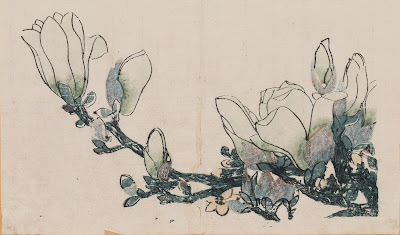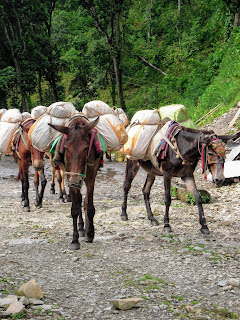Mineola: The Spirit of the War-Path
Here is the first act of a drama from Woodland Poems--feel free to comment!
Scene: A wood near an Indian Village (late evening)
Enter: Two women (Mineola and Nakakowa) gathering wood
Mineola: See you how this dark world in silence be?
I think the evening awakes anxiousness
Just as the morning delays it: Hear you?
You may hear the birds, but they are far away;
They sing, but their songs are echoes, long, faint;
And yet they tell a truth, but it is scarce:
That we are far from ourselves when we’d be
The most intimate, and that our precious
Moments are thoughts too lazy to be felt—
And this, this, the worst sort of anxiousness!
Nakakowa: And why?
Mineola: Such times as this, when men are tired,
I am awake, but cannot act myself,
And being another, am an enemy
To myself who was a friend, and un-friend
The man who rises fresh to his passion.
I am wrong thus when I would be most right.
Nakakowa: Then I would say to you, Mineola,
We would be better enemies than friends.
Mineola: You think?
Nakakowa: Every day starts my anxiousness
And I am glad, truly, to see its end;
And there are none, you say, who like to sleep
When another is waking.
Mineola:Truly said:
For the world sleeps when one’s heart is burning.
Anxiousness has kept me awake these five
Nights now, and tonight seems no different—
But even then you and I have never
Lived in such opposing directions.
Nakakowa: Then it is we are far, far from ourselves,
And know not one another.
Mineola: If you say
But I know you and you are anxious too.
Nakakowa: If so, you are my enemy!
Mineola: Ah, but
Then, what a day, I think my world would end!
But I admit, this evening tells me something,
And rather than easing to some soothing
Notion, I am constantly put on guard,
That neither may I relax in a friend’s
Company, nor by myself be content.
It is Mushkanatoa! Ever since
He boasted of war and left us to be
Lost in meditation, I’ve felt this way.
Listen there! That lonely cave-filled mountain
Must be dark by now, and thrall in windy message;
These foolish twigs we’d do to gather more
So as to keep our fires fulfilled tonight.
Nakakowa: It seems you now expose my anxiousness:
You think he will descend tonight?
Mineola: How not?
I’ve not slept so long to dull my senses;
But from the simple cavern of my eye,
I see that war cannot wait much longer.
Nakakowa: Then it is you play the chief and lead war—
I think the same: war is imminent!
Know: our warriors, with my brave husband,
Have retired by those red foretelling clouds
Of early evening, gone with our faithful
Okufi down to the cleansing river.
I know not what high rumor excited
This hasty movement, but these mosquitoes
Have too long been contending with the breeze:
They are blown in all directions, as such
The enemy, who must now be aware
Of some forthcoming subjection.
Mineola: Our last
War was but small twigs with those dreaded men,
The Kittuwa, who thus have yet to see
The kettle of fury boil over.
We may but stew them once for treachery,
But never could their tender parts please yet,
Lest I, more rude, taking up my family bones,
Could make a broth some Manito could use
To salt the joys of their most precious meats!
Then for a moment they would be as me,
Who samples quickly all but savors nothing!
What else could I here do? I cannot eat;
I cannot urge the exploits of a husband dead;
I cannot mend the scalp upon a headless child;
So, thus, I recount again and again
How for so long, against those self-same foes,
Every man was reduced to his woman;
And how we had to play our weakened part
And move, tribe and all, from our ancestral
Lands, leaving some of us in subjection,
Which I had asked, because my brave husband
And my child—a warrior child whose birth
Was like bitter war—stayed to fight, and fought:
But I was won over, and thus, I fled;
I slept, oh, when they were truly awake!
Had I stayed, had I stayed; to my husband
I always gave hope, he said; and my child—
Who loves not his mother?—Oh, had I stayed,
Had I stayed: Oh, what an ancient custom
To be lain with a dead husband alive,
That was justice!
Nakakowa: Injustice recounts those deeds.
Mineola: My only homage is to my family dead,
And now that we must set again to war,
I will keep my fire burning, burning long,
For all the nights I thought myself away
From bitter sleep! But tell me this, you said
Your husband goes to war; for what reason?
Do not tell me it is what I’m thinking.
Nakakowa: If and maybe would not tell the other;
A heart as his dares not seek the answer,
But soon says ‘Do’ when the other says ‘Done.'
He searches, this is true, searches for doom,
For glory, till it finally says ‘Finished.'
He is as you now, I think: same morning,
Same evening, tries for sleep, then thinks again
To his brother; it even seems he takes
The better part of you and speaks with him.
But he always liked your husband, nor placed
The fault upon the shoulders of their blame.
He is a warrior, and so, he wars;
For all things have a certain connection,
And by the loss of your husband, he lost
Another brother, which twice come to truth,
He looks upon the only enemy
He can, and from wrath says he’s twice-removed
From any other.
Mineola: I just hope for me
He does not feel it, as I was the cause
Of that dispute.
Nakakowa: I think your husband still
Conceals you.
Mineola: Oh, you name him so as if you meant it!
Nakakowa: Hush! There’s but one revenge and that is death,
And blackness will beget your eyes—Look fast!
What old man may be stirring out this way?
Mineola: I’ve asked many nights for a Manito,
Good spirit, be it he?
Enter: Chimhok
Chimhok: Brave Warriors,
Brave Warriors, where are these men I call?
Nakakowa: They’ve all went to water with Okufi;
They left this early evening.
Mineola: There’s a noise.
Chimhok: More than a noise there is a meaning raised!
Mineola: Again. You do not hear, Nakakowa?
Nakakowa: I hear, but it is no man, and therefore
I know not the way of animals.
Chimhok: Beast?
I think not so, it is a warrior,
A war-chief who speaks earth’s consenting groan;
He’s still upon the heights, and by this noise
Means to come down.
Mineola: I must welcome him, then.
We may be idle in those times as such,
But when action calls we must be as much. (Exit)
Nakakowa: (Aside) She’s called him down; by this she calls for war! (Exit; following)
Chimhok: Brave Warriors, where are these men I call?
Brave Warriors, where are these men I call? (Exit)
Douglas Thornton






Comments
Post a Comment